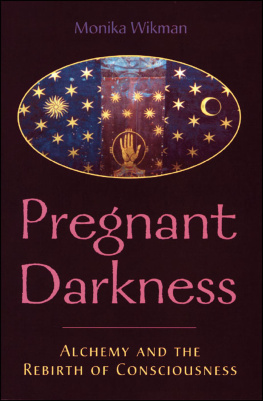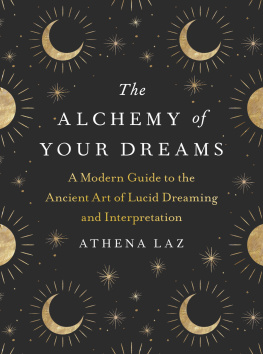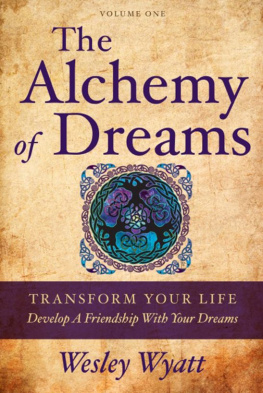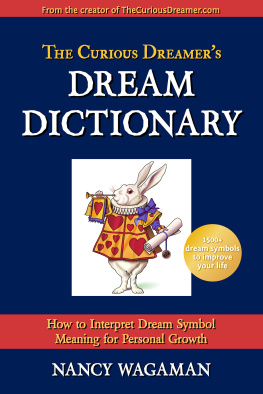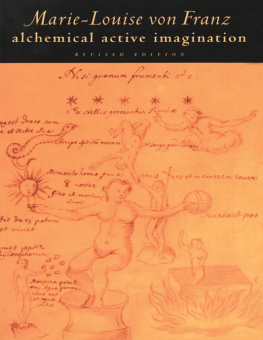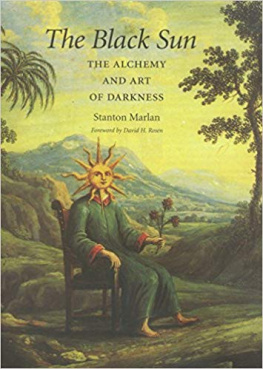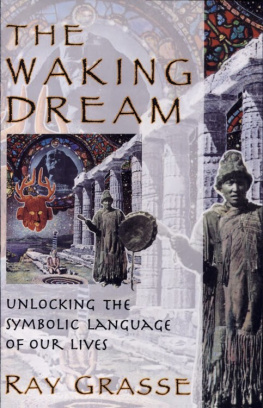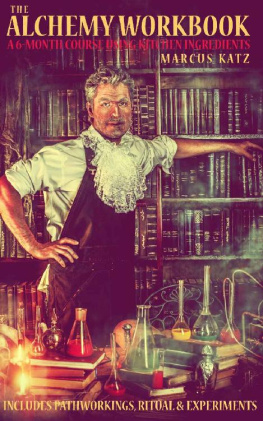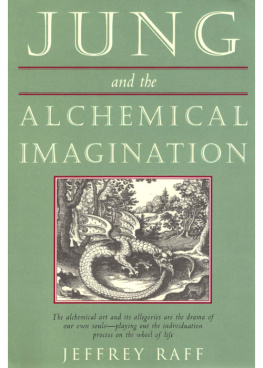
ABOUT THE AUTHOR
Monika Relph Wikman, Ph.D., obtained her B.A. from University of California, San Diego, and her doctorate from the California School of Professional Psychology, San Diego. For several years she taught graduate students at California State University, Los Angeles. She graduated as a diplomate from the Jung-Von Franz Center for Depth Psychology in Zurich. Monika works as a Jungian analyst in private practice, and part-time as an astrologer. She lives along a stream under the starry skies of Tesuque, New Mexico with horses and friends. Readers may contact Monika via e-mail:
ACKNOWLEDGMENTS
The sources for the epigraphs on part title pages and chapter title pages are:
title page: Robert Duncan, Osiris and Set, final stanza, from Roots and Branches (New York: Charles Scribners Sons, 1964), p. 69. Copyright 1964 by Robert Duncan, reprinted by permission of New Directions Publishing Corp.
: Monika Wikman, excerpt from This Being of Midnight, first stanza, in Psychological Perspectives 45 (2003): 154-155, used by permission of Psychological Perspectives.
: Rainer Maria Rilke, excerpt from I Have Many Brothers, from Selected Poems of Rainer Maria Rilke, edited and translated by Robert Bly (New York: Harper Colophon, 1982), p. 15. Copyright 1981 by Robert Bly. Reprinted by permission of HarperCollins Publishers, Inc.
: Jalal Al-din Rumi, What Hurts the Soul, from The Soul of Rumi: A New Collection of Ecstatic Poems, Coleman Barks, trans. (San Francisco: HarperSanFrancisco, 2002), p. 126. Copyright 2001 by Coleman Barks. Reprinted with permission of HarperCollins, Coleman Barks, and Maypop Books, Athens GA.
: C. G. Jung, The Collected Works of C. G. Jung, vol. 14, Mysterium Coniunctionis, 193.
: Jalal Al-Din Rumi, There Is Some Kiss We Want, excerpt from Like This, Coleman Barks, trans. (Athens, GA: Maypop Books, 1990), p. 16. Copyright by Coleman Barks. Reprinted with permission of Coleman Barks and Maypop Books.
: Marie-Louise von Franz, The Golden Ass of Apuleius: The Liberation of the Feminine in Man (Boston: Shambhala, 2001), pp. 186-187.
title page: Lisel Mueller, Spell for a Traveler, excerpt from The Private Life: Poems by Lisel Mueller (Baton Rouge: Louisiana State University Press, 1976), p. 18. Copyright 1976 by Lisel Mueller. Reprinted by permission of Louisiana State University Press.
: C. G. Jung, C. G. Jung Letters, Volume 1, Gerhard Adler and Aniela Jaffe, eds., R.F.C. Hull, trans. (Princeton: Princeton University Press, 1992), p. 19.
I am also grateful for permission to use the following material:
W. H. Auden, Autumn Song excerpt on , copyright 1937 and renewed 1965 by W. H. Auden, from Collected Poems by W. H. Auden (New York: Random House, 1976). Reprinted by permission of Random House, Inc.
Liam Blake, photograph of a jackass on p. 91, Bray Co., Wicklow, Ireland, Real Island Design Limited, Ref: SP 52, copyright 2002.
C. G. Jung, quote on p. 227, from The Collected Works of C. G. Jung, Princeton University Press, 1977. Reprinted by permission of Princeton University Press.
Kabir, poem 25 excerpt on p. 95 from Kabir: Ecstatic Poems, Robert Bly, trans. (Boston: Beacon Press, 2004), p. 33. Copyright 2004 by Robert Bly.
Jalal Al-Din Rumi, What Is the Path? excerpt on from One-Handed Basket Weaving (Athens, GA: Maypop Books, 1991), p. 112. Copyright Coleman Barks. Reprinted by permission of Coleman Barks and Maypop Books.
Jalal Al-Din Rumi, The Dream That Must Be Interpreted, excerpt on p. 196 from The Essential Rumi, Coleman Barks with John Moyne, trans. (San Francisco: HarperSanFrancisco, 1997), p. 113. Copyright Coleman Barks. Reprinted by permission of Coleman Barks, Maypop Books, and HarperCollins.
Marie-Louise von Franz, quote on p. 157, from Alchemy (Toronto: Inner City Books, 1981) p. 166, reprinted by permission of Inner City Books.
David Whyte, Faces at Braga, excerpt on ).
Monika Relph Wikman, Up Rustler's Gulch: A Winter Solstice Offering, on from Psychological Perspectives 45 (2003):11; and Inner Music, Living Water, in Psychological Perspectives 44 (2002):98-113. Used by permission of Psychological Perspectives.
Monika Relph Wikman, Human Connection and Community Mysteries in the Jungian Lineage, from Quadrant 33, no. 2, 2003. Used by permission of Quadrant.
W. B. Yeats, The Song of the Wandering Aengus, , reprinted with permission of Scribner, an imprint of Simon & Schuster Adult Publishing Group and A. P. Watt Ltd., on behalf of Michael B. Yeats, from The Collected Poems of W. B. Yeats, Volume 1: The Poems, Revised, edited by Richard Finneran (New York: Scribner, 1997), pp. 59-60.
This project has come into being with support and guidance from a number of individuals. I would like to thank Valerie Cooper at Nicolas-Hays. Her vision and expertise helped shape and birth this work in countless ways.
I extend gratitude to the analysts at the Center in Switzerland whose courage, profound depth, and creativity organically generates a rare star I am grateful to have been near: Theo Abt, Hansueli Etter, Gothilf Isler, Brigitte Jacobs, Regina Schweizer, and Eva Wertenschlag. Their own individual work with alchemy and the religious attitude toward the psyche filters into their various creations and teachings. For the years of exposure to both their work and way of life with the objective psyche I will always be gratefully indebted.
I would also like to thank Jeff Raff for his seminal work with alchemy. In Jeff Raff's earliest work, Jung and the Alchemical Imagination, and in Dr. von Franz's book, Alchemy, I found the initial trails into the wilderness of psyche exploring the mysteries of how the latent Self comes into the manifest Self in human life. Jeff Raff also encouraged me over the years to look deeper into the specific processes of the incarnation mysteries appearing in dreams, in life, and in the alchemical emblems, and to the appearance, via active imagination, of the inner companion, the ally.
Gratitude goes to Ralph Metzner. Among many of Ralph's practical meditations and tools for expanding consciousness and experiencing the activation of the realms, here I owe specific gratitude to him for exposure to the use of the Buddhist medicine wheel. It is one of the tools applied to dream and life experiences in the last chapter of this book on the processes of the rubedo.
I also thank the people with whom, in various ways, I have had the fortune of sharing life's depths and complexities: Ray Hillis, Marcie Telander, Jacqueline West, Lucy Sikes, Kathleen Burt, Patrick Whelan, Don Eulert, Pui Harvey, Regina Abt, Jack Sanford, Leslie Hammel-Turk, Susie and Gayther Gonzales, Grazia Calza, Julian David, Barbara Getz, and my family, friends, and clients who have generously offered to share their dreams and life stories for the purpose of this work. Also thanks to Margaret O'Ryan and Kate Talbot for their kind assistance with the manuscript at the beginning of the process.
BIBLIOGRAPHY
Auden, W. H. Collected Poems. New York: Random House, 1976.
Barks, Coleman, trans. Like This. Athens, GA: Maypop Books, 1990.
. One-Handed Basket Weaving. Athens, GA: Maypop Books, 1991.
. The Soul of Rumi. San Francisco: HarperSanFrancisco, 2001.
. Tentmaking. Athens, GA: Maypop Books, 2001.
Barks, Coleman, with John Moyne, trans. The Essential Rumi. San Francisco: HarperSanFrancisco, 1997.
Boehme, Jacob. The Signature of All Things.
Next page
